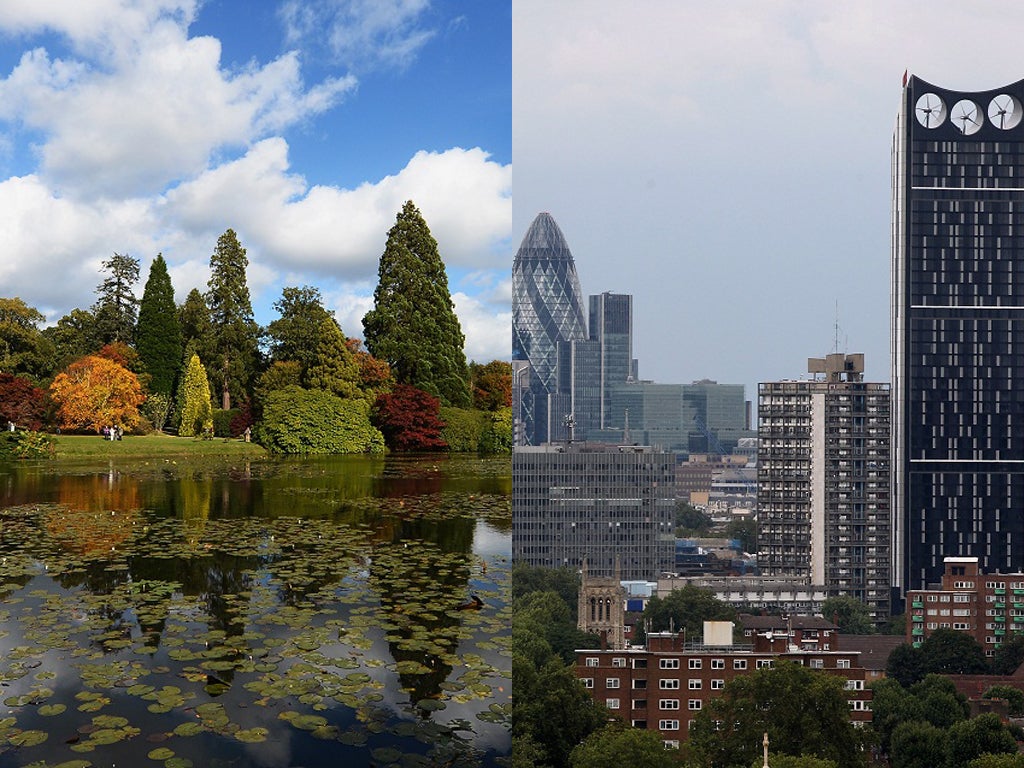They say the countryside's where you go to retire, I say these rural idylls should come with a warning
Cities are more diverse, vibrant, and challenging - altogether much better places to head into one's dotage.

I’m part of Generation Jones. My cohort and I are the tail end of the Baby Boomers. Although public opinion has decreed that middle age doesn’t actually kick in until 55, even the youngest of us Joneses (we were born between 1954 and 1965) will soon start yearning for a more sedate way of life. According to advertisers, upon reaching that particular milestone we’ll experience a sudden craving for tranquillity. Cascading through our letterboxes will be their shiny flyers depicting countryside homes - havens in which to retire.
My advice to those who fall for the pitch is - resist. I’ve been there and come back with one conclusion – Arcadia should come with a health warning.
I live in the city but, this summer, whiled away a fortnight at our second home twixt green fields and sea. It’s a place where I usually spend no more than the occasional weekend and I now know why. The lack of stress turned my brain to slurry. The daily wine intake probably didn’t help (I was, after all, on holiday), but it was being cut off from the hurly burly that was most stultifying. Gentle strolls along hoary lanes made me dopey. Returning home, the sound of the ocean lulled me into daytime snoozes. The more I relaxed, the less I felt like getting off my butt and achieving something, anything.
Why should that matter? Because my stock in trade is ‘ideas’. That’s the primary function of a freelance journalist – to come up with original ones and then turn them into features – even when we’re on holiday. Being self-employed, I’m always on the lookout for inspiration yet, however much I tried to focus, my slack mind opted for the easy and the lazy. In other words, I watched a lot of telly.
Creativity feeds off energy. My gut feeling is that there’s more of it happening in cities than in rural idylls. Perhaps it’s because the countryside is more homogenous. For example, it’s people who are middle-aged, middle-class and white who permanently reside at my summer location, and their politics tend towards the conservative. I am, admittedly, some of these things. However, it’s mixing with those who are very different to me, in terms of ethnicity, age and class, which stimulates my grey matter. When people of contrasting backgrounds get together, there’s inspiration. I want my assumptions challenged but traditionalists demand conformity.
Being laid-back rots the brain. Recent research has found that people in rural areas may have double the risk of developing Alzheimer’s disease. Medics are unsure why this should be. My own - admittedly unscientific - theory is that fresh air and rolling fields aren’t enough to keep the mind stimulated. Middle-aged people need to keep reassessing what they believe in, be open to new ideas and never, ever become complacent.
Last year, my mother died from complications arising from dementia. She and her husband spent much of their retirement in a quiet backwater in front of the TV. After he died, she withdrew into herself. From being an intelligent, lively personality, she cut herself off from the outside world. I think she’d have lived longer if she’d engaged with it instead.
On the debit side, the city can feel frenzied; on the credit side, it has better infrastructure. The researchers saw this as a possible reason for the higher rates of Alzheimer’s they found in the countryside, where there are fewer ways and means for the disease’s diagnosis and treatment.
Not only that, but it’s an ageing, aged place. From 2001 to 2007, its population of pensioners increased by 15%, compared with 4% in urban areas. Oldies in slippers tend to clump together. No wonder the young rush in the opposite direction for the bright lights.
In the meantime, the commonplace view persists that cities are worse for the health. A quick internet search throws up the usual suspects, with the metropolitan routinely equated with pollution, toxins, noise and crowds. A Daily Mail headline – "why living in a city makes you fat, infertile, blind, depressed and even causes cancer" – is typical.
Setting the story straight are campaigners who want the middle-aged to face up to Arcadia’s reality. According to ‘Over the Hill?’ nearly 60% of the over 55’s find the idea of rural retirement appealing. It urges them to remove their rose-tinted specs. The countryside, they say, suffers from inferior transport, services, housing and technology. Its inhabitants report isolation and loneliness. Urbanites yearning for the quiet life need to get wise. It can be a killer.
Currently, I live in a provincial town that masquerades as a city. In a couple of years’ time, as soon as I’ve waved my youngest child off to college, I won’t be retreating to a rose-covered cottage but setting my sights on the largest, most vibrant and creative city in the UK – London.
Join our commenting forum
Join thought-provoking conversations, follow other Independent readers and see their replies
Comments
Bookmark popover
Removed from bookmarks